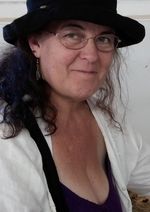Southerners Pronounce Their Vowels Twice

People actually add syllables to their vowels in upstate New York and in the midwest too. "Dad" becomes "Dee-yad." It's the flat "a" you hear from actors like Bill Murray or Dennis Farina. The letter "a" is stretched into a long "e" before it converts to the short "a" sound, but is preceded by a "y" consonant. "Dee-yad." "Mee-yad." "See-yad." It sounds pretty "bee-yad"!
All over the United States speech twists itself curiously depending on the region. Robert Blumenfeld recorded a CD with a manual for actors called, "Accents". On it, he reads aloud various phrases in the English language in a standard, American, "nightly news" type accent which is his regular speaking voice. Then he announces a region, such as Northeastern United States, Midwestern United States, Yorkshire, England; Edinburgh, Scotland; Sydney, Australia; or Johannesburg, South Africa. Then with astounding versatility he demonstrates the various ways a single phrase bends depending on the regional pronunciation. It's amazing how the word, "pork chop", for example, contorts itself around the tongue according to locale.
General American with a light "r" sound: "Pork Chop." Louisiana and deep Gulf regions: "Poke chop." East Coast Southern: "Po-uck chaw-up." New York City: "Pawk chawp." Middle plains states: "Pore-k chop." Boston: "Pahk Chop."
My husband and I, both of sound Yankee stock, feel very comfortable in regions where "coffee" is pronounced, "kawfee" (NYC), where "park the car" is pronounced, "pahk the cah" (Massachusetts) and where "Peter" is pronounced, "Petah" (Maine).
Though it may seem bigoted, (because it is bigoted!) I cringed when I first heard the natives of Richmond, Virginia, say something like, "Why don't y'all come on ovah and sit on the po-itch and have some oss tea." I had to ask myself why the following phrase in a New York accent "Come on over for a cupa cawfee and we'll tawk," sounded acceptable, and yet, the southern drawl sounded ignorant to me. The logic of this must reach into the realm of ancestry. Either that or people in the north talk gooder.
Our four children were born in Richmond, Virginia. For two Yankee parents to give birth to four children in the heart of the confederacy was a milestone, indeed. The funny thing is, our children all speak in relatively accent-free, standard American-English, but they can lapse into the Virginia drawl in a split second. "Mama, Ahm, ta-a-ard! Kin I laaa down heah an' take a nay-yap for a little wh-a-a-al?"
I still wonder about grammar school reading programs in the south. How do kids learn to read from phonics programs when so many of the words are pronounced with a southern ski slope at the end? "Chollie, now y'all run down ovah thay-yah an' get me a big, ol' peesa pah and a fo-uck, ya li'l, doll baby!"
Local colloquialisms sound odd when passed on to transplanted residents. Our church pastor is from Japan. Local minister friends have been trying to teach him to say, "Ya'll come back!" after the service, but it doesn't sound the same with a Japanese accent. Although, "You-all come back!" followed by a humble bow, does give it a unique and original twist!
The really weird thing about living in a locale for any time period, is that patterns of speech do rub off on one without one's noticing. I have heard myself say, "Well, it'd be right handy to stop at the Walmart on the way there," or "I reckon that'd be fine," or "Y'all come back!" My boys have even acquired the unspoken, redneck password, "DANG!"
I still make fun of the southern dialect but I try not to do it in front of southerners. One of these days some nice Johnny Reb is going to grab me and say, "Ya'll come ovah heah Kee-yum an' let me slap y'upside ya hay-id, ya damn Yankee! Bend ovah an' gimme a chance to wup yo-ah Yankee BEEhind."
After about 15 years of being in the south, the accent is almost endearing to me now. We slip into a southern accent around the house sometimes, like immigrants practicing their new language. I reckon when we go back to New England to see relatives we haven't seen in years, we'll say, "How y'all been?" and they'll say, "Come on in for a cupa cawfee and we'll tawk."
I reckon that'd be right nice.
Kim lives in Maine, which is lovely, and where she continues her enthusiastic relationship with Art, Music, Nature, Books, Animals, Humor and Trees.


